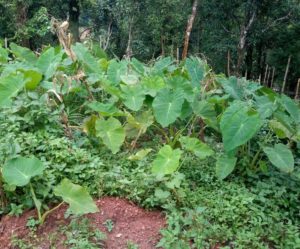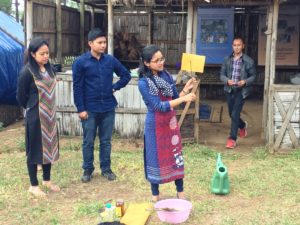A workshop on Researching and Documenting the indigenous knowledge of the Khasi Traditions of Meghalaya was conducted from the 8th to the 12th of November, 2021; it was facilitated by Dr. Tara Douglas with 17 participants including community fellows, community facilitators and students from St. Anthony’s College and Assam Don Bosco University. The umbrella objectives included raising awareness about indigenous knowledge; introducing participants to the ethnographic film theory and community media practice; and, to develop a series of short films on themes related to the roles and relationships of pollinators within the Khasi traditional knowledge systems.
The workshop followed a detailed course of action and each day exposed participants to new and valuable information:
8th November, 2021
No time was wasted even on the first day of the workshop where in Dr. Douglas explained what film making was all about and the basics of documentary filming. She shared, “In today’s complex global society, where everyone is aggressively pushing towards the digital domain, it is easy to overlook the smallest cohabitant of our giant ecosystem: the pollinator.” She went on to explain how these small insects and mammals carry out the process of pollination and how a healthy ecosystem is heavily dependent on its pollinators. She narrows down the topic to that of Meghalaya by focusing on and their essential role in sustaining life and how honey is abundantly harvested in the months of November and December due to the efforts of these pollinators; she connects this to the world of indigenous knowledge of moderation, resource-management and self-reliance which have been practiced in local communities since time immemorial. The participants are then asked to go out to the streets of Laitumkhrah and conduct interviews regarding the same and film it in a documentary style.
On the very first day, the participants learnt about beekeeping, pollination and how to record a documentary-style film and work as a team in the process. After some constructive criticism from Dr Douglas, the first day came to an end successfully.
9th November, 2021
The second day focused on the practices of ethical and indigenous research and media production; this essentially meant that they needed to understand the background and dynamics of the community; they needed to find good storytellers from within the community to make sure that their documentary ended up being an intimate and accurate one. They were then paired up to interview each other regarding their personal vision of the project and their hopes and expectations regarding the same. This led to a flurry of thoughts and ideas regarding various topics such as rural and urban life, school life, life and practices of pollinators and experiential learning through farming. The participants were again divided into 4 groups and were asked to go out into the street to film and photograph street vendors and evolve their perspective.
Overall, the second day really shed some light on the technical side of documentary-filmmaking and how to cooperate and coordinate as a team to make an intimate and clear documentary.
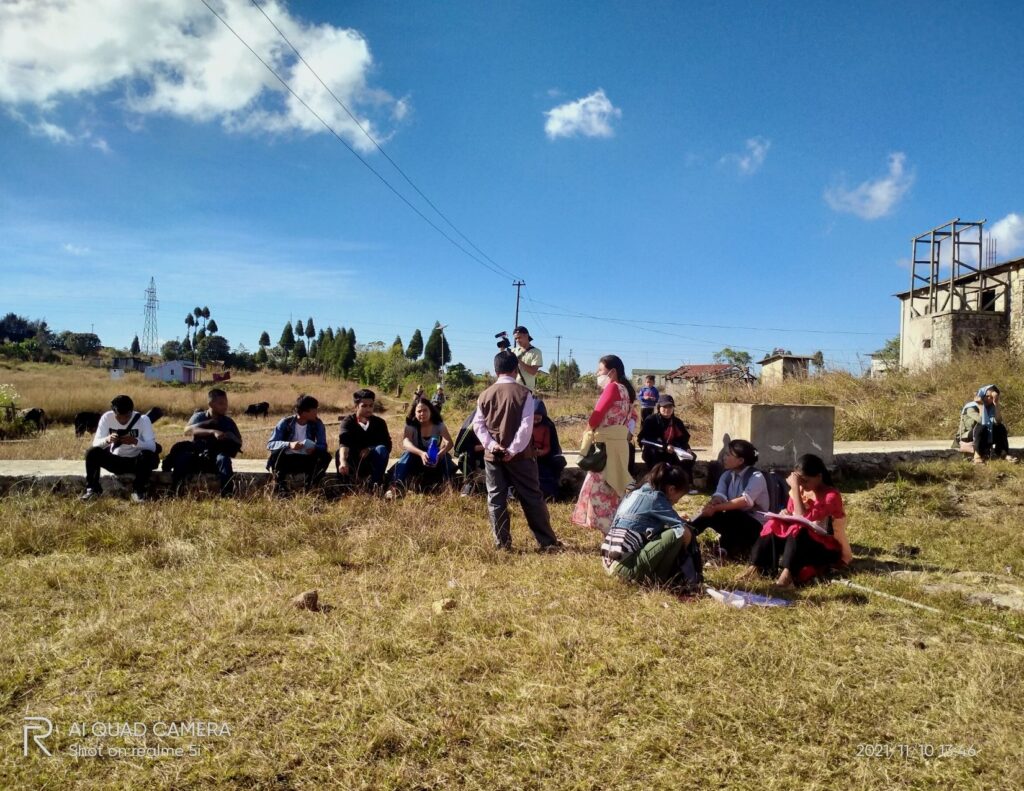
10th November, 2021
The third day of the workshop took place in Ladmawphlang Village in order to document the life of the people living there as well as the pollinators in the region. The participants conducted trial research followed by a home survey to get a realistic sense of how many people were aware of the pollinators. It came as a pleasant surprise that a good chunk of people from the village still carried out beekeeping which resulted in collection of good information for the survey. The team also paid a visit to Bah Nestar Kharmawphlang, a board member of NESFAS, who is an avid beekeeper himself and promptly explained the process to the participants. He also bestowed them with knowledge on the significance of bees in nature. In the evening, a video screening took place to initiate a discussion on the importance of pollinators and beekeeping for the people of Ladmawphlang. The community screening was a success as many people turned up for it and it also started an important discussion on preservation of pollinators and the danger of chemical fertilizers and its adverse effects.
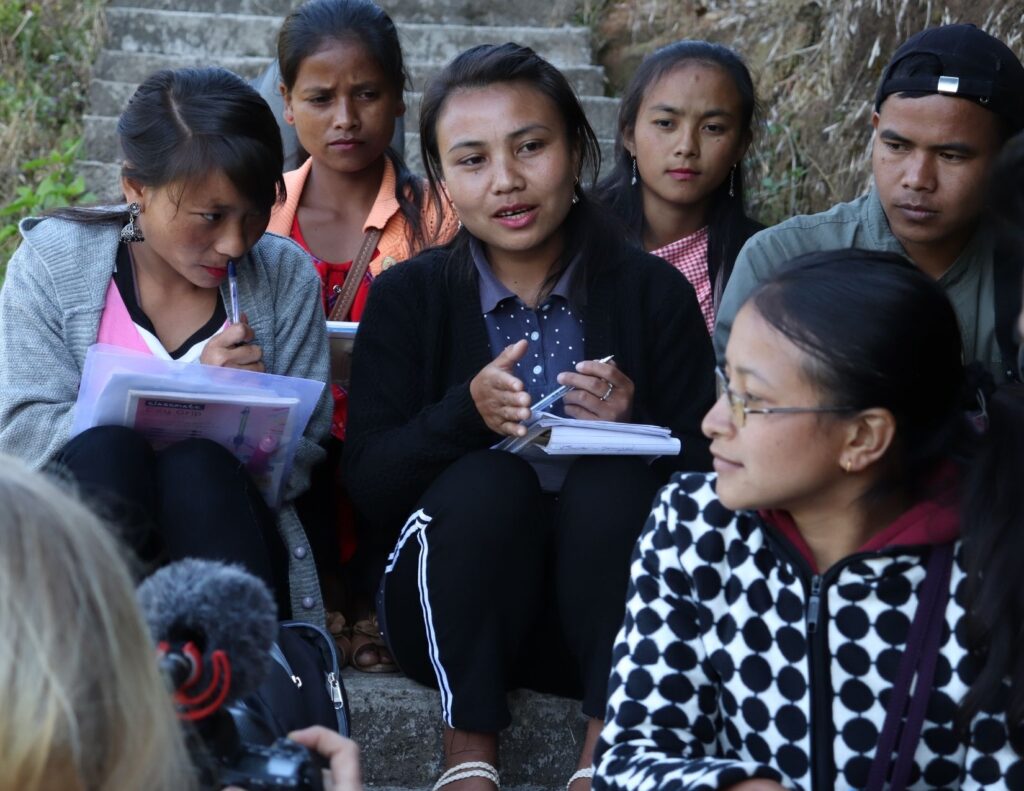
11th November, 2021
On this day, the participants along with Dr. Douglas, had a discussion on what kind of videos should be made and how to integrate modern and urban beliefs with Khasi traditional beliefs of Meghalaya. The participants then went on to conduct interviews among themselves to compare and contrast the experiences and traditions of urban and rural communities. These interviews also included the story of a beekeeper who stressed on the impact of the pollinator on nature and the ecosystem as a whole. The footage was then submitted to Dr. Douglas for editing into the final documentary. The participants observed that people from these communities are friendly, cooperative and willing to share details and information regarding their communities and way of life.
Through this day of the workshop, the participants gained confidence in filmmaking as well as speaking in front of the camera; they learnt to discuss and delegate different ideas and thoughts and brainstorm together to create something substantial.
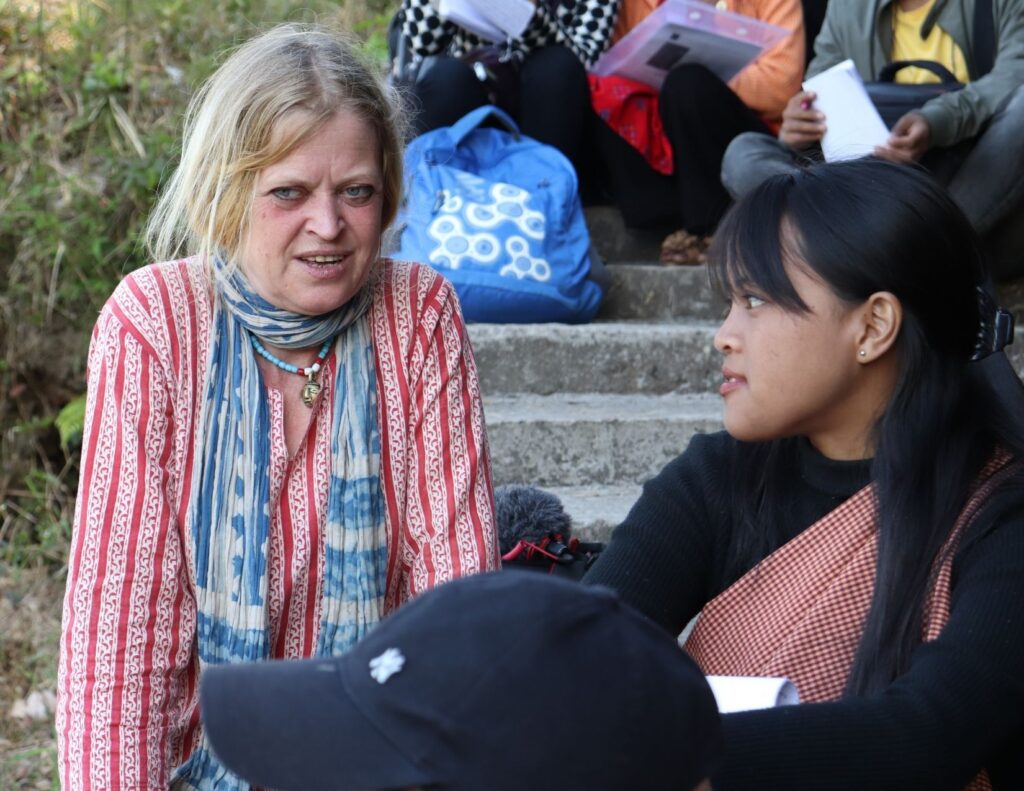
12th November, 2021
The last day of the workshop was basically a reflection session to discuss their experiences and learnings as well as the future of this project and the different ways to take it forward. Some of the post-production roles were decided such as translations and subtitling of the documentary film. There was a final video screening which was followed by the distribution of certificates to all the participants and vote of thanks by Kong Alethea Lyngdoh, Communications Lead Associate, NESFAS.


